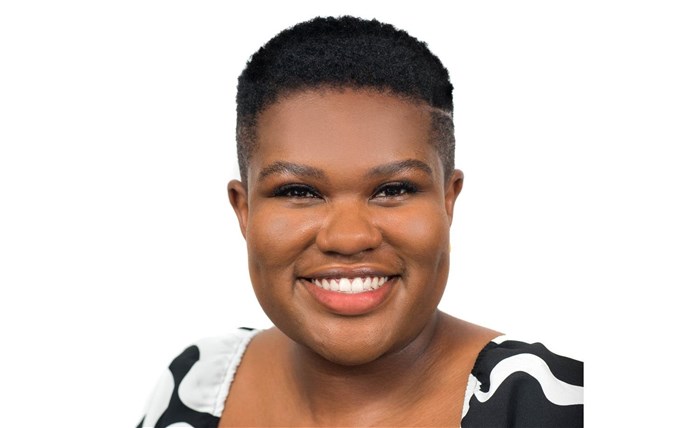The Broad-Based Black Economic Empowerment Act, No 53 of 2003 (B-BBEE Act) and the regulations promulgated thereunder (B-BBEE Regulations) govern the effective participation of Black people in the South African economy. The B-BBEE Act aims to promote a higher growth rate of ownership and management, increased employment, skills training, and the involvement of communities in economic activities, more equitable income distribution and the granting of equal access to government services for Black South Africans.

Nomathole Nhlapo, Associate, M&A Practice, Baker Mckenzie Johannesburg
The B-BBEE Act aims to redress the historic economic inequalities as a result of apartheid, which excluded a large portion of the South African population, being Black people, from the primary economy of South Africa. The impact of this policy was particularly damaging to the ability of Black women to meaningfully participate in the economy.
The Codes of Good Practice for B-BBEE and sector specific codes (B-BBEE Codes) provide the framework for interpretative principles of B-BBEE that specify the elements against which an entity will be measured to determine its B-BBEE compliance rating, together with the methodology for measuring each element of B-BBEE. The B-BBEE Codes have included key provisions that are aimed at empowering Black women and providing enhanced recognition of certain categories of Black people that include Black women. The impact of the B-BBEE Codes on the participation of Black women-owned businesses in economic activity is outlined in each element of B-BBEE and is discussed below.
Ownership and management
The ownership element measures the extent to which Black people are owners of businesses. Black people can be direct or indirect participants in the ownership structure of a company, an existing close corporation, a co-operative, a trust, a broad-based ownership scheme, or an employee share ownership programme.
By way of an example (which illustrates the manner in which ownership by Black people generally - and Black women in particular - is encouraged), the broad-based ownership scheme rules outlined in Annex 100 (B) of the B-BBEE Codes require at least 50% of the fiduciaries of the scheme must be Black people and at least 25% must be Black women.
Entities receive points for the management control scorecard by meeting the targets for participation of Black people and Black women at board, executive management, senior management, middle management, and junior management levels, and for employing Black people with disabilities.
Skills development
The skills development element measures the extent to which employers carry out initiatives designed to develop the competences of Black employees and Black people. The measurement criteria for skills development targets expenditure on learning programmes for Black people and expenditure on bursaries for Black students at higher education institutions.
The aforementioned targets are broken down according to the relevant economically active participants (EAP) as determined and published by Statistics South Africa. The EAP statistics are reported according to the following race groups: African male, African female, Coloured male, Coloured female, Indian male, Indian female, White male, and White female. The compliance target for skills development is split in proportion to the prevailing EAP statistics.
Johan Botes and Verushca Pillay 9 May 2023
Enterprise development
The enterprise and supplier development element measures the extent to which entities procure goods and services from empowering suppliers with strong B-BBEE levels and provide support for the growth of Black-owned businesses. This element allows companies to receive points on procurement spend from empowering suppliers that are at least 30% Black women-owned based on the applicable B-BBEE recognition levels as a percentage of the total measured procurement spend.
Additionally, B-BBEE procurement spend from generic entity suppliers that are at least 51% Black-owned or at least 51% Black women-owned (utilising the flow-through principle) can be recognised under the enterprise and supplier development scorecard. The B-BBEE Codes encourage entities to support procurement from Black-owned and Black women-owned businesses in order to increase the participation of these businesses in the mainstream economy.
Socio-economic contributions
The B-BBEE Codes recognise socio-economic development contributions that companies can advance through initiatives that promote access to the economy for Black people. Socio-economic development commonly takes the following forms: programmes with the specific objective of facilitating income-generating activities for Black people as targeted beneficiaries; development programmes for women, youth, people with disabilities, people living in rural areas; support of healthcare and HIV/AIDS programmes; support for education programmes, resources and materials at primary, secondary and tertiary education levels, as well as bursaries and scholarships; community training; skills development for unemployed people and adult basic education and training; or support of arts, cultural or sporting development programmes.
There is still much work to be done to implement the objectives of the B-BBEE Act and the B-BBEE Codes and ensure an inclusive business environment – especially for Black women. Female-led businesses need to be adequately supported by legislative frameworks, business, government, and the communities in which they operate. Women have the power to be decision-makers and occupy strategic positions in business. The spirit of equality, equity and collaboration, bolstered by the necessary legal support, will see women thrive in all sectors of the economy.









































